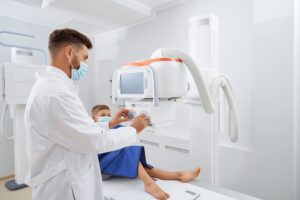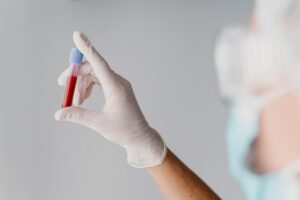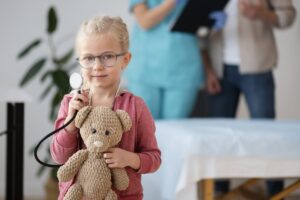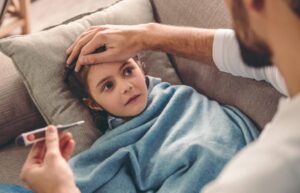
Life after treatment
How to prevent complications or detect them in time?

- Regular reviews and analyzes. Дn order to detect complications early, it is important to undergo regular medical examinations and tests, including complete blood count, biochemical tests, ultrasound, CT or MRI, as indicated. This will help the doctor to detect changes in the body in a timely manner and adjust treatment.
- Keep an eye on the symptoms. БBe on the lookout for symptoms that may indicate complications:
- Fatigue: зLow energy can be both a normal consequence of treatment and a sign of infection or anemia.
- Temperature: пFever may indicate an infectious process that requires immediate treatment.
- Pain: бoly can be a signal of complications such as thrombocytopenia, inflammation, or organ damage. If you have these symptoms, consult a doctor immediately.
- Maintenance therapy. Дn order to minimize the risk of complications, it is important to continue maintenance therapy, in particular:
- Vitamins and minerals: пhe supplements prescribed by your doctor can help support your immune system and normalize your micronutrient levels.
- Physiotherapy: цe will help maintain mobility, improve blood circulation, and reduce the effects of a weakened immune system.
Regular examinations and attentive attention to symptoms can significantly reduce the risk of complications and help detect them in a timely manner.
How often do I need to undergo control examinations?

After completion of cancer treatment, regular follow-up examinations are critical for monitoring the child's condition and early detection of possible relapse or complications. The schedule and type of examinations depend on the type of cancer, stage, type of therapy, and individual characteristics.
What kind of examinations are recommended.
The specific set of examinations is prescribed by the oncologist, but there are general recommendations that apply depending on the type of cancer:
- General examinations (recommended for all types of cancer):
- Blood test (general and biochemical): The level of hemoglobin, white blood cells, platelets, as well as liver function (ALT, AST) and kidney function (creatinine, urea) are checked. This is a basic way to assess the state of the body and identify abnormalities that may indicate a relapse or side effects of therapy. Frequency: every 1-3 months in the first year, then less frequently.
- Analysis for tumor markers: For some cancers (e.g., hepatoblastoma or neuroblastoma), specific markers are measured (AFP, NSE). Not universal, but important for certain diagnoses.
- Oncologist's examination: Physical examination (palpation, assessment of symptoms) to detect changes in the condition (swollen lymph nodes, pain).
- Instrumental examinations (depending on the type of cancer):
- ULTRASOUND: It is used to monitor internal organs (abdomen, kidneys, liver) for cancers such as nephroblastoma or lymphoma. Frequency: every 3-6 months for the first 2 years.
- X-ray or CT scan: It is used to evaluate the lungs (metastasis) or bones (in case of osteosarcoma). For example, in case of sarcomas or lymphomas, a CT scan of the chest is performed every 6-12 months.
- MRI: It is most often prescribed for brain or soft tissue tumors (neuroblastoma, glioma). MRI of the brain can be performed every 3-6 months in the first year after treatment of CNS tumors.
- Scintigraphy or PET-CT: It is used to assess metastases or residual tumor activity (for example, in neuroblastoma or lymphoma). This is less common, usually once a year or when suspected.
- Echocardiography (echocardiography): To check the heart after chemotherapy with drugs that affect it (anthracyclines). It is recommended every 1-2 years.
- Thyroid function testing (ultrasound, hormones): After radiation therapy to the neck or chest to detect hormonal disorders.
- Specific examinations:
- At leukemias: bone marrow or cerebrospinal fluid puncture if relapse is suspected.
- At bone tumorsX-ray or MRI of the affected area.
- At retinoblastoma: examination by an ophthalmologist and MRI of the orbit.
Mandatory examinations for all types of cancer

Yes, blood test (general and biochemical) і examination by an oncologist are considered universal and mandatory for all children after cancer treatment. They provide a basic picture of the health status. Other examinations (ultrasound, CT, MRI) are prescribed depending on the diagnosis, because each type of cancer has its own "risk zones". For example, in leukemia, more attention is paid to the bone marrow, and in brain tumors, MRI of the head is used.
Can the examination schedule change?

Yes, the schedule of control examinations can and often does change depending on:
- The results of preliminary analyzes:
- If the tests are stable (normal blood counts, no tumor markers), the frequency of examinations can be reduced. For example, instead of an ultrasound every 3 months, it can be done every six months.
- If there are abnormalities (increased markers, changes in the images), the doctor may prescribe additional tests or more frequent checks (for example, MRI in a month instead of six months).
- Symptoms:
- New complaints (pain, weakness, fever for no reason, weight loss) may prompt unscheduled examinations, even if the schedule called for a pause. For example, bone pain can lead to an urgent X-ray or scintigraphy.
- If there are no symptoms and the tests are normal, the schedule remains standard.
- Time after treatment:
- In the first 2 years after remission, examinations are frequent (every 1-3 months), as the risk of relapse is highest.
- From the 3rd to the 5th year - once every 6-12 months.
- After 5 years (if the remission is stable) - annually or less frequently, but observation continues for life due to the risk of late complications.
Advice to parents:
- Refine your plan. After each examination, ask the oncologist: "What examinations are next? When to come?"
- Keep a calendar. Write down the dates of tests and images so you don't miss them.
- React to changes. If you notice new symptoms (fatigue, pain, fever), do not wait for a scheduled visit - call your doctor.
- Don't panic. Regular check-ups are a way to make sure everything is fine, not a cause for alarm.
The schedule and set of examinations are always individualized. The doctor adjusts them to balance between careful monitoring and minimal burden on the child. Always talk to your oncologist if you have any questions or concerns.
What are the chances of recurrence of the disease?

The chances of recurrence depend on the type of cancer. For example, in leukemia, the probability of relapse is 10-20%, and in brain tumors - up to 30%.
It is important that early detection of relapse significantly increases the chances of successful treatment and remission.
How quickly should you respond to suspicions?

After cancer treatment, it is important to monitor your child's condition in order to detect complications or infections in time and consult a doctor. In addition to fever, pain, and weakness, there are other symptoms that can signal problems.
Symptoms that may indicate complications or infection:
- Changes in the skin:
- Rashes, redness, or bruising for no reason may indicate blood problems (low platelets) or infection.
- Yellowness of the skin or eyes (jaundice) - possible liver function disorder due to the toxic effects of therapy.
- Non-healing wounds or ulcers are a sign of a weakened immune system or local infection.
- Breathing problems:
- Shortness of breath or rapid breathing - may be due to infection (pneumonia), anemia or lung damage after radiation therapy.
- Coughing, especially dry cough or cough with sputum, is a potential sign of infection or a late complication.
- Digestive disorders:
- Nausea or vomiting that returns after therapy is completed may indicate liver or kidney problems or a relapse.
- Diarrhea or constipation for a long time - possible effects of chemotherapy on the intestinal mucosa or infection (e.g. clostridia).
- Blood in the stool or urine is a serious signal of bleeding or organ damage.
- Changes in weight or appetite:
- Sudden weight loss without a change in diet can be a sign of a relapse or hormonal disorder.
- Weight gain or swelling (especially on the legs or face) - potential problems with the kidneys or thyroid gland.
- Constant refusal to eat - may indicate emotional difficulties or physical complications (stomatitis, digestive disorders).
- Neurological signs:
- Headache, especially severe or frequent, is a possible sign of brain tumor recurrence or late effect of radiation therapy.
- Dizziness, seizures, or impaired coordination may indicate neurological complications.
- Changes in vision or hearing (blurred vision, tinnitus) - the effects of therapy or relapse in the head area.
- Bleeding or bleeding:
- Nosebleeds, bleeding gums, or small hemorrhages under the skin are signs of low platelet count or blood clotting disorders.
- Other symptoms:
- Enlarged lymph nodes (neck, armpits, groin) - can be both a reaction to infection and a signal of relapse (especially in lymphoma).
- Sweating at night (profuse, for no reason) - sometimes associated with an infection or relapse.
- Itchy skin without a rash - possible liver disorder or allergic reaction.
Why is it important?
These symptoms do not always mean something serious - for example, a cough can be a cold, and loss of appetite can be an emotional reaction. However, due to the weakened state of the body after cancer treatment, any change can be a signal of infection (immunity is not yet fully restored) or complications (the effect of therapy on organs). Early detection allows you to react quickly and avoid deterioration.
How to prevent and act?
- Regular inspections. Follow the schedule of examinations (blood tests, ultrasound, MRI), even if there are no symptoms.
- Diary. Write down all changes (date, symptom, duration) - this will help the doctor assess the situation.
- Quick response. Call your oncologist if the symptom lasts for more than a day or gets worse (e.g., fever above 38°, bleeding, severe pain). Do not wait for a scheduled visit.
- Prevention. Avoid contact with the sick, wash your hands, monitor your child's diet and rest.
Advice to parents:
Don't panic over every symptom, but be careful. If there is something that bothers you (other than the usual fever, pain, or weakness), it is better to check with your doctor - this may be the key to timely help. Your observations along with medical supervision are the best way to protect your child.
Can a child attend kindergarten or school during and after treatment?

Attendance at a kindergarten or school depends on the child's health status and the type and intensity of treatment.
Before starting treatment: If the child feels well and there is no significant decrease in immunity, it is safe to attend school.
During treatment: Due to the weakening of the immune system, the body becomes more vulnerable to infections, so doctors often recommend temporarily avoiding visits to the team to reduce the risk of infection.
After the treatment is completed: When the blood counts are normalized and the doctor allows it, the child can return to school. However, it may take several months for the immune system to recover.
The decision to attend an educational institution is made individually, based on blood tests (especially white blood cell count) and the child's general condition.
This guide is a guideline. Consult your doctor for all decisions, as each child is unique!
Our partners
